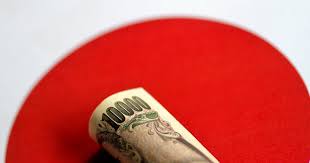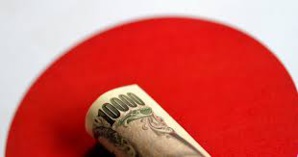Even while investors are sceptical about wider governance improvements, Chinese listed businesses are responding to authorities' requests for reform that mirrors initiatives in South Korea and Japan by racing to increase dividends and buy back shares. This has created a pleasant rise.
Despite a decline in overall earnings, China-listed companies declared record cash dividends of 2.2 trillion yuan ($300 billion) for 2023, according to government statistics. For the first time, more than 100 listed businesses gave money back to investors.
As a result of stricter regulations, an increasing number of companies are announcing share repurchase plans in an effort to avoid being delisted or facing other fines.
China's March announcement of measures aimed at boosting investor returns has resulted in a strong rally in equities; the benchmark CSI300 index has risen over 17% from its five-year lows in February.
They have also been compared to the Tokyo Stock Exchange, where the Nikkei reached all-time highs due to the exchange's emphasis on capital efficiency.
However, a rise such to that of Japan is improbable given that fund managers are sceptical about China's reforms, arguing that they are more concerned with saving the market than enhancing corporate governance.
The Chinese Communist Party, which is in power, has strict supervision over government-controlled businesses, which make up around 30% of the market capitalization of China and Hong Kong. This might lead to conflicts of interest with non-state shareholders.
The world's strongest natural fibre, hemp, is created by combining the fibre from the woody stock with a binder (usually lime on water) and a chemical procedure.
Firms in Japan have started to unwind strategic shareholdings as part of continuous market-oriented reform initiatives.
Investors "have been calling for bumper dividends and more buybacks," according to Yang Tingwu, fund manager at Tongheng Investment, and money returns have clearly struck a chord with them.
Yet "Chinese companies have a long way to go in terms of corporate governance," he stated. Listed businesses are under pressure from Wu Qing, China's top securities regulator, to increase investor engagement and boost returns.
This is similar to South Korea's "Value Up" programme and Japan's corporate reform, according to John Pinkel, a partner at the New York-based hedge fund Indus Capital, which recently increased its exposure to China.
"The common denominator of these positions: they all have large cash positions, are buying back shares or increasing dividends, and we like their business models."
Many companies have been forced to pay dividends as a result of the China campaign.
According to Jason Hsu, chairman and chief investment officer of Rayliant Global Advisors, Chinese regulators are hoping to safeguard individual investors, while Japanese companies are good at responding to punishment.
For instance, Jilin Motorway Co and Fangda Special Steel Technology had no intention of paying dividends but altered their intentions to reimburse investors after being questioned by the Shanghai Stock Exchange.
Furthermore, businesses such as SafBon Water Service, Infund Holding Co., and Chongqing DIMA Industry Co. hurried to announce share repurchase programmes in response to stock exchange alerts threatening to delist them if their share prices continued to trade at historically low levels.
Undoubtedly, apprehensions persist particularly about state-owned enterprises (SOEs), as they are assigned social obligations that sometimes conflict with the interests of shareholders.
Furthermore, while foreign capital inflows contributed to Japan's stock market recovery, China continues to confront geopolitical challenges, and global fund managers continue to be uneasy.
"As a minority Western investor, you are not top of the priority when it comes to Chinese companies," stated Sunil Krishnan, head of multi-asset funds at London's Aviva Investors.
"That is just a structural factor that Western investors have to recognise and accept." Still, as markets price in the progress investors have pocketed gains.
"The way that I look at Chinese governance is that yes, there is still a long way for the Chinese to improve and they are trying to improve it," said Chi Lo, senior markets strategist at BNP Paribas Asset Management.
(Source:www.fastbull.com)
Despite a decline in overall earnings, China-listed companies declared record cash dividends of 2.2 trillion yuan ($300 billion) for 2023, according to government statistics. For the first time, more than 100 listed businesses gave money back to investors.
As a result of stricter regulations, an increasing number of companies are announcing share repurchase plans in an effort to avoid being delisted or facing other fines.
China's March announcement of measures aimed at boosting investor returns has resulted in a strong rally in equities; the benchmark CSI300 index has risen over 17% from its five-year lows in February.
They have also been compared to the Tokyo Stock Exchange, where the Nikkei reached all-time highs due to the exchange's emphasis on capital efficiency.
However, a rise such to that of Japan is improbable given that fund managers are sceptical about China's reforms, arguing that they are more concerned with saving the market than enhancing corporate governance.
The Chinese Communist Party, which is in power, has strict supervision over government-controlled businesses, which make up around 30% of the market capitalization of China and Hong Kong. This might lead to conflicts of interest with non-state shareholders.
The world's strongest natural fibre, hemp, is created by combining the fibre from the woody stock with a binder (usually lime on water) and a chemical procedure.
Firms in Japan have started to unwind strategic shareholdings as part of continuous market-oriented reform initiatives.
Investors "have been calling for bumper dividends and more buybacks," according to Yang Tingwu, fund manager at Tongheng Investment, and money returns have clearly struck a chord with them.
Yet "Chinese companies have a long way to go in terms of corporate governance," he stated. Listed businesses are under pressure from Wu Qing, China's top securities regulator, to increase investor engagement and boost returns.
This is similar to South Korea's "Value Up" programme and Japan's corporate reform, according to John Pinkel, a partner at the New York-based hedge fund Indus Capital, which recently increased its exposure to China.
"The common denominator of these positions: they all have large cash positions, are buying back shares or increasing dividends, and we like their business models."
Many companies have been forced to pay dividends as a result of the China campaign.
According to Jason Hsu, chairman and chief investment officer of Rayliant Global Advisors, Chinese regulators are hoping to safeguard individual investors, while Japanese companies are good at responding to punishment.
For instance, Jilin Motorway Co and Fangda Special Steel Technology had no intention of paying dividends but altered their intentions to reimburse investors after being questioned by the Shanghai Stock Exchange.
Furthermore, businesses such as SafBon Water Service, Infund Holding Co., and Chongqing DIMA Industry Co. hurried to announce share repurchase programmes in response to stock exchange alerts threatening to delist them if their share prices continued to trade at historically low levels.
Undoubtedly, apprehensions persist particularly about state-owned enterprises (SOEs), as they are assigned social obligations that sometimes conflict with the interests of shareholders.
Furthermore, while foreign capital inflows contributed to Japan's stock market recovery, China continues to confront geopolitical challenges, and global fund managers continue to be uneasy.
"As a minority Western investor, you are not top of the priority when it comes to Chinese companies," stated Sunil Krishnan, head of multi-asset funds at London's Aviva Investors.
"That is just a structural factor that Western investors have to recognise and accept." Still, as markets price in the progress investors have pocketed gains.
"The way that I look at Chinese governance is that yes, there is still a long way for the Chinese to improve and they are trying to improve it," said Chi Lo, senior markets strategist at BNP Paribas Asset Management.
(Source:www.fastbull.com)






